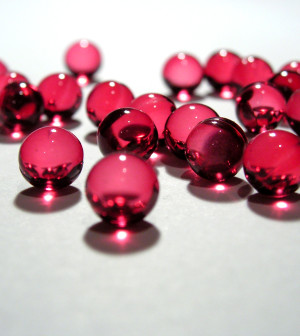- Could Your Grocery Store Meat Be Causing Recurring UTIs?
- Are You Making This Expensive Thermostat Error This Winter?
- Recognizing the Signs of Hypothyroidism
- 10 Strategies to Overcome Insomnia
- Could Artificial Sweeteners Be Aging the Brain Faster?
- Techniques for Soothing Your Nervous System
- Does the Water in Your House Smell Funny? Here’s Why
- Can a Daily Dose of Apple Cider Vinegar Actually Aid Weight Loss?
- 6 Health Beverages That Can Actually Spike Your Blood Sugar
- Treatment Options for Social Anxiety Disorder
Sniffing Out the Asparagus-Odor-in-Pee Mystery

After eating asparagus, do you notice your urine smells funny? Your answer may depend on your genetic makeup, a new study suggests.
To see why some people are spared the pungent odor after eating the vegetable, researchers looked at data from more than 6,900 people of European-American descent.
The study, led by Sarah Markt and Lorelei Mucci of the Harvard T.H. Chan School of Public Health in Boston, found that 40 percent of the participants could smell asparagus in their urine after consuming and digesting the green stalks. The rest said that they could not.
The investigators then identified 871 variants in multiple genes involved in the sense of smell that are strongly associated with an inability to detect the scent of asparagus in pee. These people were labeled “asparagus anosmic.” Anosmic is defined as the absence or loss of the sense of smell.
According to the study authors, the “findings present candidate genes of interest for future research on the structure and function of olfactory (sense of smell) receptors and on the compounds responsible for the distinctive odor produced by asparagus metabolites.” Further research is needed to learn why these genetic variants developed, the authors added.
“Future replication studies are necessary before considering targeted therapies to help anosmic people discover what they are missing,” Markt and colleagues noted in a Harvard news release.
More men than women reported being able to smell asparagus in their urine, but this might be due to under-reporting by a few modest women. In addition, women might be less likely to notice an unusual odor because of their position during urination, the study authors suggested.
The study was published online Dec. 14 in the BMJ.
More information
The Smithsonian Institute has more on asparagus odor in urine.
Source: HealthDay
Copyright © 2026 HealthDay. All rights reserved.










